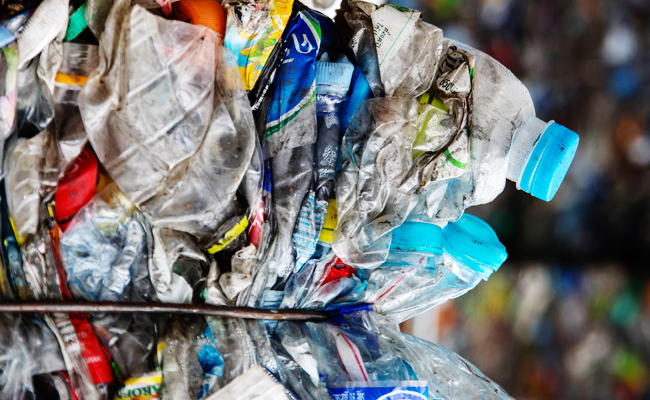
Campaigns to stop people from drinking bottled water have ranged from tongue-in-cheek to deadly serious over the years, but they’ve always had one through-line: bottled water is a disaster for the environment. We, the user, have never been the focus. But that’s likely to change, thanks to a new study published by Environmental Science & Technology, which found that people who drink bottled water ingest almost double the number of microplastics as those who drink tap.
In fact, drinking bottled water can mean ingesting up to 90,000 additional plastic particles. A number which seems like altogether too many plastic particles.
The fact that the planet is on the verge of drowning in plastic is not a secret — oceans are being choked and dead whales are washing up on shore with stomachs full of plastic bags. Reports of how it’s piling up in landfills and how recycling hasn’t quite lived up to the promise of the ’90s abound. Yet discussions about plastic’s detrimental effects don’t often center around the human body.
Americans “eat, drink and breathe between 74,000 and 121,000 microplastic particles each year depending on their age and sex” regardless of whether you drink bottled or tap water. What the study shows is that drinking bottled water doubles the number of particles ingested. Most sobering, the study concludes, “Our estimates of American consumption of microplastics are likely drastic underestimates overall.”
You may be wondering: what’s the big deal? Some research has shown that microplastics can enter the tissue and compromise immune system functions, and according to the U.S. National Library of Medicine’s Tox Town, “Microplastics both absorb and give off chemicals and harmful pollutants. Plastic’s ingredients or toxic chemicals absorbed by plastics may build up over time and stay in the environment. It is not known if you can be exposed to these pollutants by eating contaminated seafood.”
Despite well-documented concerns, there’s a serious lack of long-term research about the effects our exposure to plastic is having. So at the very least, even if you don’t care about, you know, bottled water’s impacts on delicate ecosystems and marine life and such, you may want to put down the plastic bottle for your own sake.
